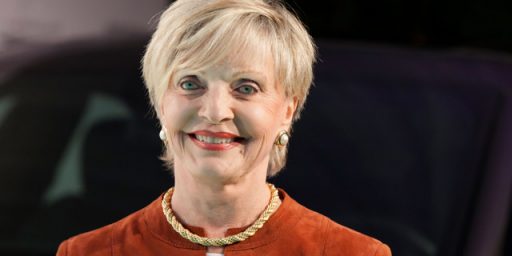Climate Change, Business and Economics
David Henderson, currently a visiting professor at the University of Wesminster has raised some interesting criticisms of the IPCCs work in regards to the economics of climate change. This is an area, that IMO, gets very little attention. Most of the discussion in regards to climate change is over whether or not the warming is really taking place, or if it is, how bad will it be, and so forth. Little thought is given to the economic analysis, data and assumptions that go into the IPCCs research.
Why is this an important issue? Because the amounts of money that are at issue here are staggering. Billions if not trillions of dollars are at stake. Basically, things like Kyoto look at restricting the amount of various greenhouse gases (GHGs) that enter the atmosphere. To accomplish this, most plans focus on a cap and trade emissions policy. That is, a cap is placed on emissions, and then each country will have an allotment of emission credits that it can use to emit GHGs or the country can upgrade its industry (energy, transportation, etc.) to emit less GHGs and then sell the credits to other countries that don’t want to upgrade. The idea is to internalize the costs of GHGs and Climate Change into the production process to arrive at an economically efficient outcome and/or prevent global warming.
Besides the above, economics also plays a role in the assesment reports that the IPCC puts out. The Special Report on Emissions Scenarios is a key report that projects emissions based on projections of world output, world energy use, and the carbon-intensity of various energy sources. Thus, economic data, analsysis, and assumptions are of critical importance.
So what things does Henderson point to as problematic at the IPCC?
-
Objectivity, consensus and monopoly
- The Panel’s treatment of economic issues is flawed. Writings that feature in the Third Assessment Report contain what many economists and economic statisticians would regard as basic errors, showing a lack of awareness of relevant published sources; and the same is true of more recent IPCC-related writings, as also of material published by UNEP. In relation to economics, the IPCC milieu is neither fully competent nor adequately representative.
- These weaknesses, as also the Panel’s handling of some other issues outside economics, cast doubt on its claims to authority, objectivity and representative status in relation to its work as a whole.
- The response of the Panel’s directing circle and milieu to informed criticism has typically been, and continues to be, inadequate or dismissive,
- The built-in process of peer review, which the IPCC treats as a guarantee of quality, does not adequately serve this purpose, for two reasons. First, providing for peer review is no safeguard against dubious assumptions, arguments and conclusions if the peers are largely drawn from the same restricted professional milieu. Second, the peer-review process as such, here as elsewhere, is insufficiently rigorous. Its main purpose is to elicit expert advice on whether a paper is worth publishing in a particular journal. Because it does not normally go beyond this, ‘…peer review does not typically guarantee that data and methods are open to scrutiny or that results are reproducible.’
- Both the directing circle, and the IPCC milieu more generally, are characterised by an endemic bias towards alarmist assessments and radical ‘solutions’. This bias goes back to the earliest days of the IPCC: it is in line with the views and presumptions of the Panel’s sponsoring departments and agencies. From the outset, this affiliation with what I have termed global salvationism has affected the IPCC’s capacity and readiness to treat the issues objectively.
First, a general point. The whole idea of creating a single would-be authoritative fount of wisdom, giving expression to a scientific consensus, is itself open to doubt. Even if the IPCC process were indisputably and consistently rigorous, objective and professionally watertight, it could well be unwise for governments to place exclusive reliance, in matters of extraordinary complexity where huge uncertainties prevail, on a single source of analysis and advice and a single process of inquiry. Viewed in this light, the very notion of setting consensus as an aim appears as questionable if not ill-judged.
More specifically:
Point number 4 is one I’ve brought up by pointing to the work done by Steve McIntyre and Ross McKitrick in regards to the famous “Hockey Stick”. McIntyre and McKitrick have been trying to validate the studies that the Hockey Stick is based on and have meet quite a bit of resistance and misdirection in regards to code, data, and so forth. When we are talking about possibly trillions of dollars I think that it is incumbent on Mann and his co-authors to put aside their monumental egos and put up their code, data, and so forth and not whine and bitch about it. Part of the problem is that many people seem to think that the academic notion of peer review is sufficient. For deciding what gets published in a journal and thereby if a professor should get tenure or not it is probably sufficient. However, when trillions of dollars are at stake, I think it is incumbent upon all who are involved in the IPCC to make their data, code and so forth as widely accessible as possible. Instead we get crud like this,
In fact, this is not the case. None of the major multiproxy studies have anything remotely like a complete due diligence packages and most have none at all. The author of one of the most quoted studies [Crowley and Lowery, 2000] told me that he has “mis-placed†his data.
In the case of the Mann et al [1998,1999] study, used for the IPCC’s “hockey stick†graph, Mann was initially unable to remember where the data was located, then provided inaccurate data, then provided a new version of the data which was inconsistent with previously published material, etc. The National Post has recently reported on my experience as this unfolded.
As for some of the economic assumptions one that could be critical is the assumption about endogenous change. That is, are the models that the Special Report on Emission Scenarios incorporating for the fact that there could be shifts over time away from one type of energy source? The term endogenous means that as the model runs and relative prices change, the demand for various inputs will also change. This can be seen, for example, during the oil shocks in the 1970’s. GDP growth trend continued pretty much at the same rate, but energy consumption did not. If the models do not take into account this kind of change then it could very well provide a misleading forecast for future emissions, which in turn could lead to a misleading forecast of future warming and ultimately bad policy which could result in very bad outcomes.
As McKibbin, Pearce, and Stegman have pointed out issues such as these do not mean that Climate Change is not a problem or that we should do nothing. What it means is that the IPCC needs to tighten up its methodology and the way it shares its data. Also, as Henderson suggests the IPCC should no longer hold a monopoly as the sole source of information on climate change by its member governments. I don’t hold much hope for this though.






Very interesting article. As I read this, I was consumed by the writing itself. This writing has all the earmarks of an over educated, self absorbed individual that couldn’t get his point across if his life depended on it.
While the writing may or may not be accurate, It totally lacks any resemblance of common sense and logic.
steve; one point was well made in this article;often the truth is not nearly as important as what people believe.
anyone seen the disney documentary on this subject,”chicken little”? very informatve.